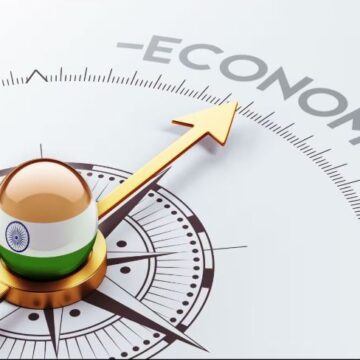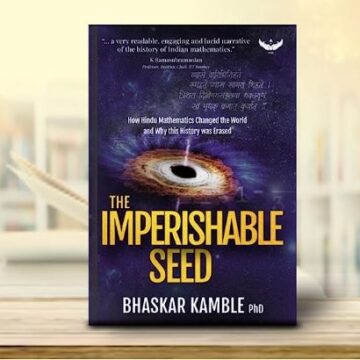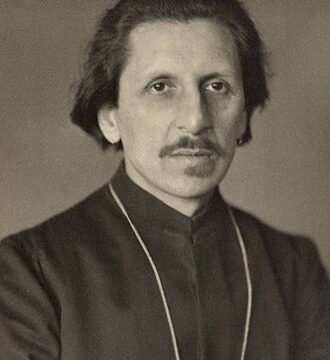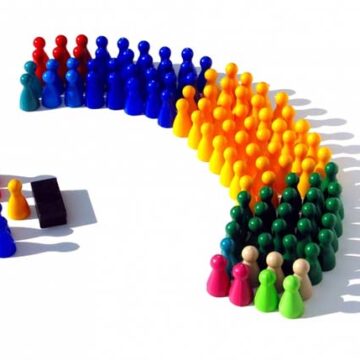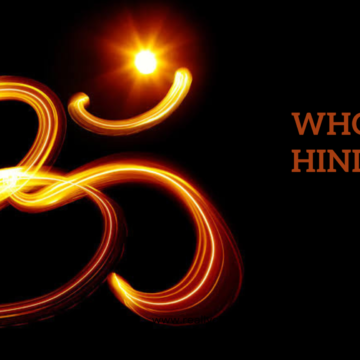Part 1 of this series was a summary of the ancient Indian economy. In this part, we shall look at the mediaeval economy of India, which began with the fall of the Gupta dynasty in the 7th century CE and finally culminated with the beginning of the Delhi Sultanate in the 13th century CE. This part also covers the important rise of Europe in dominating the world order through its colonial expansion and how it specifically impacted India too.
Author: Pingali Gopal (Pingali Gopal)
Understanding Indian Economy: Ancient To Modern – Part 1
"For a long time, Marxist historians had a hegemonic hold on only one type of discourse. Marxist linear history represents India and its traditions as the past, or decadence, and the West as the future, or progress. In a world where globalisation, trade, and mutual exchange are a given, it is disagreeable to argue that perhaps we needed an invasion or colonisation to open our eyes to the world."
‘The Imperishable Seed’ By Bhaskar Kamble – A Summary Review
Dr. Pingali Gopal reviews 'The Imperishable Seed' By Bhaskar Kamble, a theoretical physicist from IIT Kanpur and presently a data scientist in Germany.
The linear progression of history from a primitive past to an advanced future, deeply entrenched in western philosophy, embeds itself in Indians even today as a classic case of ‘colonial consciousness’. Bhaskar has done a brilliant job of describing the history of mathematics, a much ignored subject in our educational systems, and tracing the roots of many subjects to the genius mathematicians of ancient and mediaeval India.
Ananda K. Coomaraswamy on Education in India
This article is a summary and paraphrasing of three of the important essays by Ananda K. Coomaraswamy on the English education of those times (Education in India; Memory in Education; and Music and Education in India).
These three brilliant essays appear in the book Essays in National Idealism. He wrote on an overwhelming variety of topics, which perhaps would require a lifetime of study for any individual.
The aim of this article is to stimulate readers to undertake a serious journey to the writings of Coomaraswamy, a person whose rediscovery means a lot to present India, confused by a mass of rhetoric eulogising the notions of "modernity" and progress.
The reality of a hundred years ago, that he highlights in these essays, is unambiguously still relevant to India, with its acceptance of both the English language as the major medium of instruction and secularism as the guiding principle of our curricula.
Understanding Political Systems Of India – Part 4 – Chaos In The Narratives And The Resistance To Correct Them
"Post-independent academia propagated a linear version of history: past equals primitive equals India; future equals advanced equals West. Indian civilization, at least five thousand years old, apart from a high quotient of personal happiness, had a thriving economy with highly evolved arts, literature, education, sciences, spirituality, architecture, and so on. And then came the Western political philosophies, which persistently ill-fit our experiences.
Modern social sciences, with a great colonial hangover, have a strong antipathy for the traditional systems of India. This antipathy and the failure to look at Indian traditions have been dominant narratives in academia, the media, and politics.
We can always look at the past to handle the future better, and there is no better place than India to begin this, as Sri Aurobindo always insisted."
In the final installment of the series titled "Understanding Political Systems Of India" Dr. Pingali Gopal wraps up the discussion about force-fitting Western thought and political frameworks to Indian social systems, at the cost of Indian traditional systems tailor-made for our diverse society.
Understanding Political Systems Of India – Part 3 – Indigenous Political Thinking In Ancient And Modern India
"Western polity conceives of doing away with political parties and creating governments of national unity only in times of war or crisis; India, because of her long tradition of a unity underlying her diversity, should have shown that unity is not a freak phenomenon but a workable basis for new politics."
The current political and social systems being followed in India remain wedded to the older British structures. Concepts such as uncoupling of state and religion, secularism et al are based in Judeo-Christian theology; and where it is not available, these become radically unintelligible.
In the third installment of the series titled "Understanding Political Systems Of India", Dr. Pingali Gopal shares his findings from his study of ancient Indian thinkers such as Kautilya, and modern thinkers such as Sri Aurobindo, and Ananda Coomaraswamy, a Sri Lankan Tamil philosopher with a deep understanding of Indian culture.
Enlightened monarchies, free citizens, and decentralised political units glued together by spiritual and cultural unity were the essence of political India in the past. Following independence, India’s attempt at decolonization was less than half-hearted; and thinkers such as Sri Aurobindo were categorically ignored.
Understanding Political Systems Of India – Part 2 – The Political Trajectory Of Post-Independent India
"Much of today’s normative ‘liberal democracy’ has clear theological roots and may not make sense outside the Western world. Universalising and secularising a theological theme may be problematic when applied to Indian culture. Independent India, ignoring indigenous political philosophy, inherited Western values, creating a story of contradictions clashing with the intensely traditional society of India."
In the second installment of the series titled "Understanding Political Systems Of India", Dr. Pingali Gopal brings us a summary of essays of Professor Bhikhu Parekh where he assesses post-Independent Nehruvian India.
Jawaharlal Nehru, Prime Minister from 1947 to 1964, constantly looked at the West as a template for India’s future, rejecting the indigenous past. The article analyses the effects of implementation of Western political thought and primarily British laws in the Indian society which wasn't structured the same way as the West. When implemented in India, the institutions of Western law encourage just the opposite of what such laws are meant to do: a vengeful, spiteful, and ‘selfish’ citizenry. Instead of promoting a cohesive society, such laws encourage divisiveness and conflict in society.
Understanding Political Systems Of India – Part 1 – Political Ideologies – A Dummy’s Understanding of Background Western Theories
"The political spectrum teaches absurdly that opposites are the same. The two ‘positions’ - Left and Right - are the mixing of incoherent, unrelated, and constantly shifting ideas lumped together by the accident of history. Aggressive military positioning hardly connects to a free-market philosophy. Defenders acknowledge this variation but claim an underlying essence: the Right (conservatives), ‘backward looking’, want to conserve; the Left (progressives), ‘forward looking,' want change. Both wings' policies, in fact, are ‘backward-looking’ and marked by nostalgia, depending on the issue."
In the first installment of the series titled "Understanding Political Systems Of India", Dr. Pingali Gopal analyses the multiple prevalent political systems and ideologies of the West, that define world politics as we know it today. These systems have been allowed to influence Indian politics and policy making after independence, with complete disregard to the ancient political systems of India.
The broad classification of political ideology as Right or Left is nebulous at best - one can falsify every proposed essence of right or left, which shows us that ideologies are nothing but social constructs. these Right-Left political ideas do not make sense either in the Western context or in the Indian context, and yet, for decades, we have held on to them. We need to understand our past political systems better, and we need to transcend the paradigm.
Hindu, Hinduism, Hindudtva – Part 2
In the second part, Dr. Pingali Gopal discusses the evolution of political Hindutva after independence, and sheds light on the failure to define the basic terms as we struggle with the alleged rise of ‘Hindu fundamentalism'.
Hindu, Hinduism, Hindutva – Part 1
Who exactly is a ‘Hindu’ and what are ‘Hinduism’ and ‘Hindutva’? Does it mean the land (geography), ancestral roots (history), or a shared culture?
Dr. Pingali Gopal tackles this proverbial bull by the horns, systematically looking at attempts to define and distinguish ‘Hinduism’ and ‘Hindutva’ by Western thought, the Indian liberal elite, and practising Hindus.

